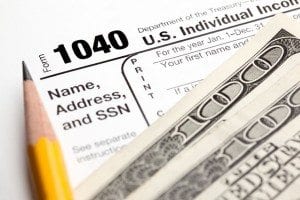Kevin Pace is a jazz musician who teaches music appreciation in Northern Virginia. When the IRS announced it would impose the Affordable Care Act’s employer mandate here in the Old Dominion, Pace’s employer cut hours for part-time professors in order to avoid steep penalties. Pace lost $8,000 in income. That would be bad enough if the penalties the IRS is now imposing on Virginia employers were legal. Yet two federal courts have held they are not.
In King v. Burwell, four Virginia taxpayers are challenging the IRS’s decision to impose Obamacare’s major taxing and spending provisions in states that refused to establish a health-insurance “exchange.” As provided in the Affordable Care Act, the federal government established fallback exchanges (HealthCare.gov) in those states.
But the act authorizes premium subsidies — and certain taxes that those subsidies trigger — only “through an Exchange established by the State.” In spite of that clear statutory requirement, the IRS is issuing premium subsidies and imposing those taxes in 34 states, including Virginia, that did not establish exchanges. The King challengers allege the IRS is subjecting them, Kevin Pace and 57 million other Americans to illegal taxes in the form of Obamacare’s individual and employer mandates. The Supreme Court heard oral arguments earlier this month, and will likely rule by June.
Times-Dispatch columnist A. Barton Hinkle’s “The case against Obamacare is looking weaker,” March 23 — is skeptical of the challengers’ claim that Congress intended to authorize the disputed taxes and spending only in states that established exchanges. I used to share his skepticism. I no longer do.






